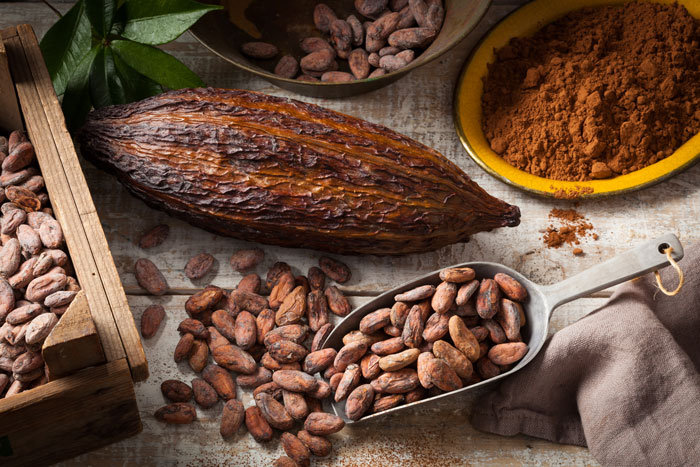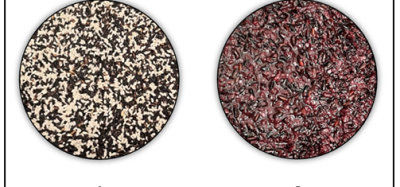No more forest will go to cocoa, biggest producing nations pledge
- Like
- Digg
- Del
- Tumblr
- VKontakte
- Buffer
- Love This
- Odnoklassniki
- Meneame
- Blogger
- Amazon
- Yahoo Mail
- Gmail
- AOL
- Newsvine
- HackerNews
- Evernote
- MySpace
- Mail.ru
- Viadeo
- Line
- Comments
- Yummly
- SMS
- Viber
- Telegram
- Subscribe
- Skype
- Facebook Messenger
- Kakao
- LiveJournal
- Yammer
- Edgar
- Fintel
- Mix
- Instapaper
- Copy Link
Posted: 20 November 2017 | George Smith (New Food) | No comments yet
Two countries that together produce more than two-thirds of the world’s cocoa have agreed to tackle deforestation through a strict framework.


SWEETEN THE DEAL: Many of the world's biggest confectioners have pledged their support of the frameworks.
Côte d’Ivoire and Ghana pledged themselves to so-called Frameworks for Action with leading chocolate and cocoa companies at the UN Climate Change Conference (COP23) in Bonn last week.
They will work with some of the biggest names in confectionery, including Mars Wrigley, Nestle and The Hershey Company, to end deforestation and restore forest areas.
Central to the frameworks is a commitment to no further conversion of any forest land for cocoa production. The companies and governments pledged to eliminate illegal cocoa production in national parks, in line with stronger enforcement of national forest policies and development of alternative livelihoods for affected farmers.
The set of public-private actions announced last week represent unprecedented commitments on forest protection and restoration, and sustainable cocoa production and farmer livelihoods. These combined actions, which are aligned with the Paris Climate Agreement, will play a crucial role in sequestering carbon stocks and thereby addressing global and local climate change.
Speaking at the event, Côte d’Ivoire Minister of Water and Forests Alain Richard Donwahi said, “The forests of Côte d’Ivoire are an essential resource for the socio-economic development of our country. We support this Framework for Action and the vision it lays out for preserving and restoring our forests, including the national parks. We are pleased that the Framework is aligned with our National Policy of Preservation and Rehabilitation of Forests and the REDD+ strategy to secure our natural resources and help us to implement it.”
“The Government of Ghana is committed to upholding the actions agreed in this framework and will do our part to ensure the Framework’s success.” said Ghana Minister of Lands and Natural Resources John Peter Amewu, “This includes enhancing environmental governance and supportive measures that enable cocoa farmers to adopt cocoa agroforestry practices that are climate-smart and well integrated with our REDD+ strategies.”
World Cocoa Foundation Chairman Barry Parkin said, “These comprehensive Frameworks for Action are important landmarks as they spell out a series of steps by both governments and industry to stop deforestation in cocoa-growing areas. In making good on these commitments, the public and private sectors will be partnering on actions that result in cocoa becoming a serious agroforestry crop, where different trees and crops co-exist on the same land and previously deforested land is being rehabilitated. This approach could serve as a model for other commodities.”
The two governments and companies agree through the Frameworks to accelerate investment in long-term sustainable production of cocoa, with an emphasis on “growing more cocoa on less land,”. Key actions include provision of improved planting materials, training in good agricultural practices, and development and capacity-building of farmers’ organisations.
Sustainable livelihoods and income diversification for cocoa farmers will be accelerated through food crop diversification, agricultural inter-cropping, development of mixed agroforestry systems, and other income generating activities designed to boost and diversify household income while protecting forests.
The governments and companies, which represent and estimated 80+ percent of global cocoa usage, commit to full and effective consultation and participation of cocoa farmers in the process, and promotion of community-based management models for forest protection and restoration. They will assess and mitigate the social impacts and risks of any proposed land-use changes on affected communities, and ensure provision of alternative livelihoods and restoration of standard of living of affected communities as needed.
The governments and companies have committed to a comprehensive monitoring process, including a satellite-based monitoring system to track progress on the overall deforestation target, and annual publicly disclosed reporting on progress and outcomes related to the specific actions in each Framework.
Other companies that have thus far committed to the frameworks are: Barry Callebaut; Blommer Chocolate Company; Cargill Cocoa and Chocolate; CEMOI; Cococo Chocolatiers; ECOM Group; Ferrero; General Mills, Inc.; Godiva Chocolatier, Inc.; Guittard Chocolate Company; Meiji Co., Ltd.; Mondelēz International; Olam Cocoa; Sainsbury’s; Toms Group; Touton; Tree Global; and J.H. Whittaker & Sons Ltd.
More are expected to announce their commitment to the frameworks soon.







